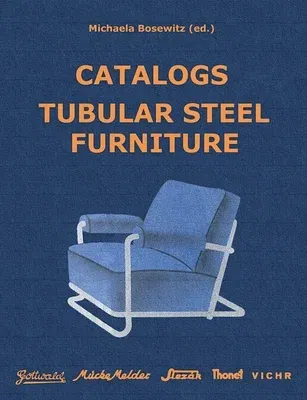Catalogs Tubular Steel Furniture: Gottwald, Mücke-Melder, Slezák, Thonet-Mundus, Vichr & Co.Paperback, 27 January 2020

Qty
1
Turbo
Ships in 2 - 3 days
In Stock
Free Delivery
Cash on Delivery
15 Days
Free Returns
Secure Checkout
Print Length
186 pages
Language
English
Publisher
Books on Demand
Date Published
27 Jan 2020
ISBN-10
3752821515
ISBN-13
9783752821512
Description
Product Details
Book Format:
Paperback
Country of Origin:
US
Date Published:
27 January 2020
Dimensions:
24.61 x
18.9 x
1.02 cm
ISBN-10:
3752821515
ISBN-13:
9783752821512
Language:
English
Pages:
186
Publisher:
Weight:
340.19 gm

